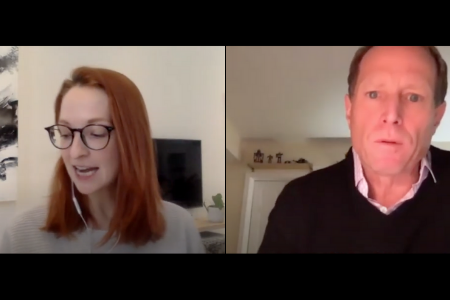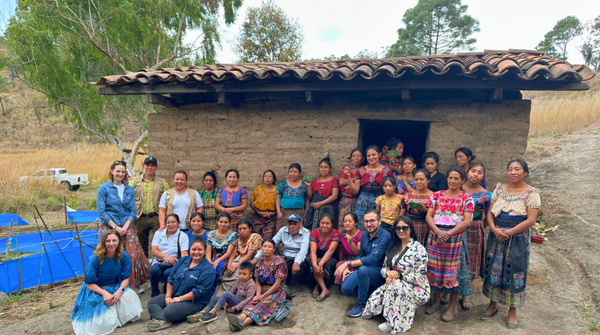Interview with Health Bridges International, COVID-19 Edition

In 2018, Lucky Iron Fish partnered with HBI to help deliver an anemia program in the Alto Cayma settlement area in Arequipa, Peru, to help address the high rates of iron deficiency among the population. HBI and LIF continue to work together on a collaborative model to help combat anemia in Peru. We sat down with Wayne Centrone, President of HBI, to understand how they are responding to COVID-19 in Peru.
What is the core work you do in Peru/what challenges are you addressing, and where do you work in Perú?
Health Bridges International (HBI) works to build bridges of collaboration within extremely impoverished and marginalized communities. We are dedicated to sustainability and the development of projects that realize long-term change. To this end, HBI connects resources to needs through innovative programs, leveraged with integrated technology solutions and projects that build local-level change agents. The work of HBI is grounded in our Four Pillars of Bridge Building: Training, Consulting, Connecting and Serving. Our focus is centered on transforming child welfare services, shaping healthcare delivery models for marginalized populations living with disabilities and supporting healthcare professionals in gaining access to the knowledge and skills they need to save lives.
How has Health Bridges International’s (HBI) operational capacity been affected?
COVID-19s immediate impact on HBI’s operational capacity is different based on the programs and projects. The long-term impact is still unknown. Training and Connecting activities have temporarily stopped and are being revamped. The Serving and Consulting activities have increased. In response to COVID-19, our initial focus has been to shut down all service-learning trips and fundraising events; and, increase support to the families in our Ines Project for medically fragile and disabled children and increase capacity. We’ve also stepped up activities in our Casa Girasoles homes for formerly abandoned children, and we have shifted management to working remotely.
How has the pandemic changed your plans, strategy, or programming?
Conditions on the ground are rapidly changing - as are our plans and strategies. Our immediate focus has been the safety and emergency response needed for our staff and the people we serve. Our long-term strategy includes looking at how we continue training programs, raise funding, complete research in progress, shift staff utilization, and manage projects from a distance. One of our strengths, and the primary reason we can achieve our goals with little funding, is our ability to connect resources. From this pandemic onwards, since we are unlikely to see much travel as an organization, we will meet people virtually, and we believe the environment will not go back to what it was, rather, it seems clear that Covid-19 has changed how we will operate.
One thing we have seen over the past few weeks are incredible stories of communities coming together to help each out. Can you share a positive story that you and your team have seen in the work you are doing?
Over and over, we are humbled by the depth of compassion people are sharing with one another. One story that is particularly poignant for us as an organization dedicated to working with marginalized children – has to do with youth who are living in a transitional housing facility in the city of Cusco. The youth, many of whom have aged out of orphanages, are provided with a small stipend every month to purchase basic hygiene supplies. This money amounts to – for many – some of the only money they get. During this challenging time, the boys have been donating their money to an NGO working with families living in extreme poverty. The money they donate goes to purchase food for families that would not otherwise eat without support.




